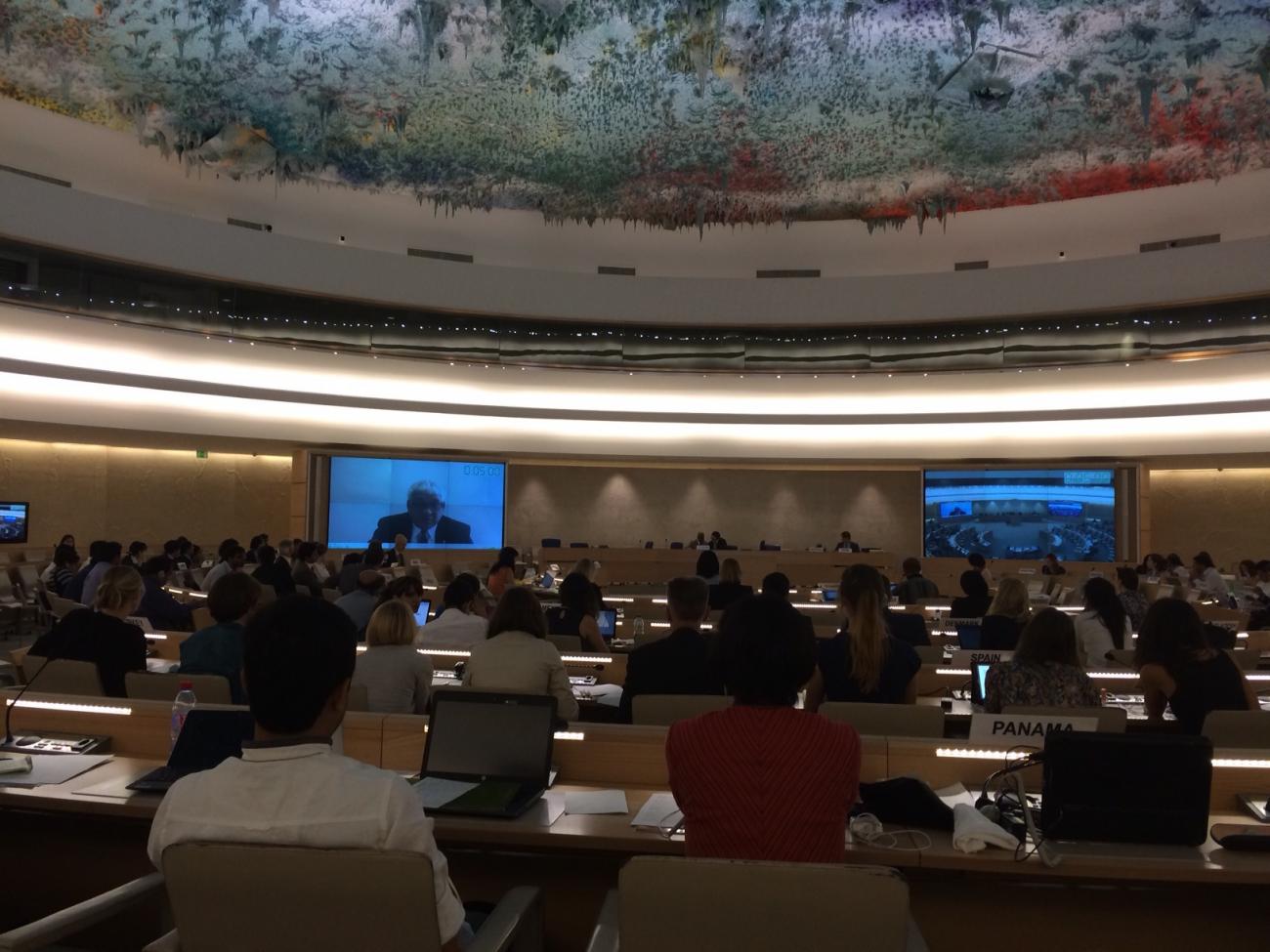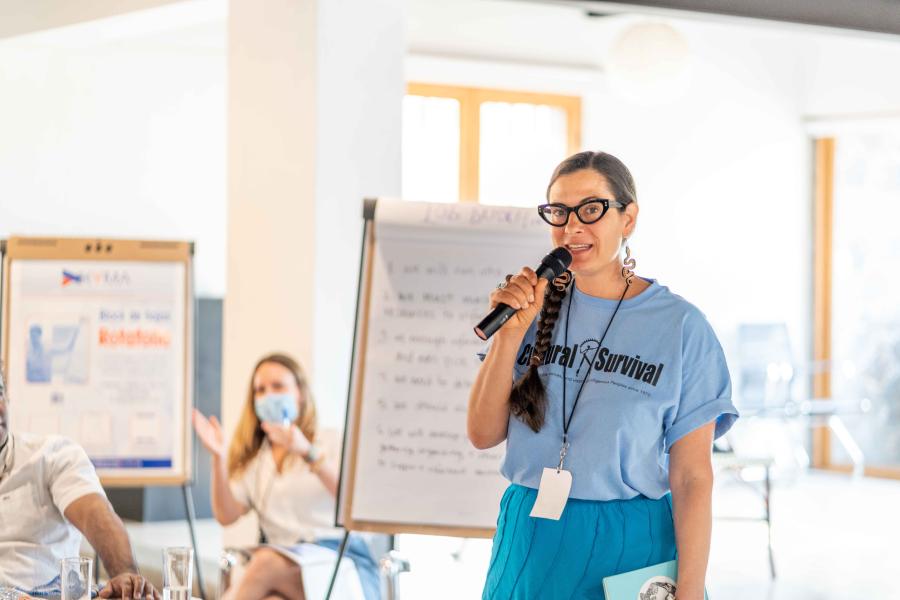
A joint intervention by the International Indian Treaty Council (IITC), Asia Indigenous Peoples Pact, Consejo de Todas las Tierras, National Congress of American Indians, Native American Rights Fund, Cultural Survival, Alifuru Council, the Global Caucus of Indigenous Persons with Disabilities, Indigenous Bar Association of Canada, La Fundacion Paso A Paso and the Indigenous World Association was presented by Andrea Carmen of IITC at the United Nations Expert Mechanism on the Rights of Indigenous Peoples' 9th session taking place July 11th – 15th, 2016 under Agenda Item 10: Proposals to be submitted to the Human Rights Council.
Thank you Mr. Chairman. We thank EMRIP for its important work and advice to the Human Rights Council.
We recognize the increasing numbers of death threats, intimidation, criminalization, imprisonment and outright killings of Indigenous Human Rights Defenders in many States around the world. The repression carried out in response to legitimate human rights activism of Indigenous Peoples opposing resource extraction and imposed development on their lands without their free, prior and informed consent as well as other rights recognized internationally as constituting the minimum standards for their dignity, well-being and survival of Indigenous Peoples as affirmed in the United Nations Declaration of the Rights of Indigenous Peoples. Repression of Indigenous Peoples exercising their recognized rights creates, contributes to and perpetuates conflicts around the world.
Indigenous Human Rights Defenders are sometimes labeled terrorists or criminals to justify violence and repression against them, further encouraging impunity by States, corporate security forces or private militia. Many reports of sexual violence, including gang rapes and trafficking carried out on against Indigenous women and girls in the context of such conflicts, as well as particular concerns regarding Indigenous human rights defenders with disabilities should also be highlighted.
The UN Declaration on the Rights of Indigenous Peoples, in articles 27, 28, 37, 40 provides a framework for just, transparent, fully participatory and rights based processes for conflict resolution and redress in collaboration with States and Indigenous Peoples. To our knowledge these models have yet to be implemented. Likewise, the Human Rights Council has adopted a Resolution for the protection of human rights defenders of Economic, Social and Cultural Rights that was initiated by the government of Norway. A Study on this issue by the EMRIP would contribute significantly to the understanding and application of this resolution by the Council and its member States as well as to the work of the UN Rapporteur on the Rights of Indigenous Peoples in this regard.
We share the profound concern, sadness and outrage expressed by many Indigenous Peoples, the UN Special Rapporteur of the Rights of Indigenous Peoples and UN experts during this session regarding the Indigenous Human Rights activists who have been recent targets of assassinations in areas of conflict. We note with great dismay that this assassination was carried out even after the Inter-American Commission on Human Rights and the UN Special Rapporteur on the Rights of Indigenous Peoples called attention to the death threats against Berta and other members of her organization, COPINH, and called upon Honduras to ensure her safety along with others under similar threats in that country. Since that time, despite the international attention, we have been informed that two other members of COPINH have been killed.
There is an urgent need for ramped up action and attention on the situation of Indigenous Human Rights Defenders around the world. We therefor request that the next Study carried out by the EMRIP be on Indigenous Human Rights Defenders and the protection of their Human Rights as affirmed in the UN Declaration and other human rights standards. This study, which could be carried out in conjunction with the UN Special Rapporteur on the Rights of Indigenous Peoples, and could include the causes and factors on the violation of the rights of human rights defenders, gaps in redress mechanisms and access to justice, and recommendations for the protection of Indigenous human defenders in relation to implementation HRC Resolutions, the UN Declaration and other Human Rights Standards.
We also request that the EMRIP invite the UN Special Rapporteurs on Human Rights Defenders and on Extrajudicial, Summary or Arbitrary Executions as well as the Rights of Indigenous Peoples to the 10th session of the EMRIP to participate in discussions on strategies to protect Indigenous Human Rights Defenders.
Thank you.


